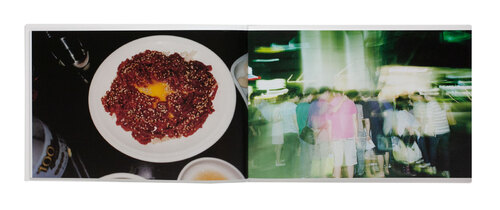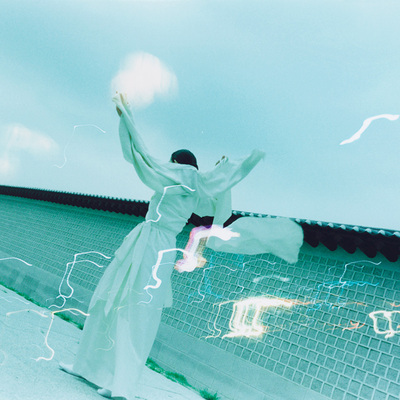
New, Recommended
Soul Trip
What the Soul Saw
Banana YoshimotoThe photobook Soul Trip was amazing.
I can’t explain what was so great about it. I was astonished. I think it was because it faithfully depicted the truth of how the flow of the human mind and the flow of one’s surroundings are perfectly connected. It even made me think that I understood the meaning of a photobook for the first time.
Tonomura’s photographs, like her extraordinary life itself, are something that ordinary people in ordinary life would never see and, if anything, would rather not see.
And, of course, my peaceful daily life too, is devoid of anything close to her photographs. Sadly nothing. That’s probably why people say my novels are warm and fluffy, but I just don’t have anything.
But deep inside I know. Tonomura and I share a similar aspiration to achieve great heights. Despite the vast differences in our lives and life experiences, we find common ground in our understanding of each other on this particular point. When we look at each other’s works, we can feel how we risked our lives without compromise and without being carried away. That is the common ground of art. Art has one purpose: to awaken people and to help them see the beauty of the world a little bit more clearly. Each photograph in this book, which appears to have been selected at random, contains an unusual amount of emotion, dreams, despair and hope. Tonomura has truly reached an incredible level.
Copyright © 2025 by Banana Yoshimoto
Throughout her career, Japanese photographer Hideka Tonomura has explored themes of identity, love, beauty and femininity in unflinchingly raw yet poetic work. In her latest book, "Soul Trip," she explores the impact of nationality and borders on love. Tracing the journey of her grandparents — who were born in Japan and South Korea — Tonomura has captured an emotional journey of separation and unity.
“My grandparents were Korean and Japanese.
They loved each other unto death.
My grandmother took responsibility for her decision to marry a Korean - she died wearing a Korean bridal gown, a symbol of her love to my grandfather.
I promised my grandmother that I would photograph her in that dress.
The wars of nations end and begin again.
As long as there are conflicts in the world, they will leave people with hatred and create further conflict.
Today there are still chains of conflicts happening somewhere in the world.
Love, not conflict, is the source of life.
We don't need any more chains of conflict.
Perhaps it's only an ideal for the world to be filled with peace.
But I believe that it is the artist's job to pursue the ideal.”
― from Hideka Tonomura’s foreword
$43.23
- -Book Size
- 182 × 257 mm
- -Pages
- 112 pages, 70 images
- -Binding
- Softcover
- -Publication Year
- 2024
- -Language
- English, Japanese, Korean
- -Limited Edition
- 800
- -ISBN
- 978-4-910244-36-5








